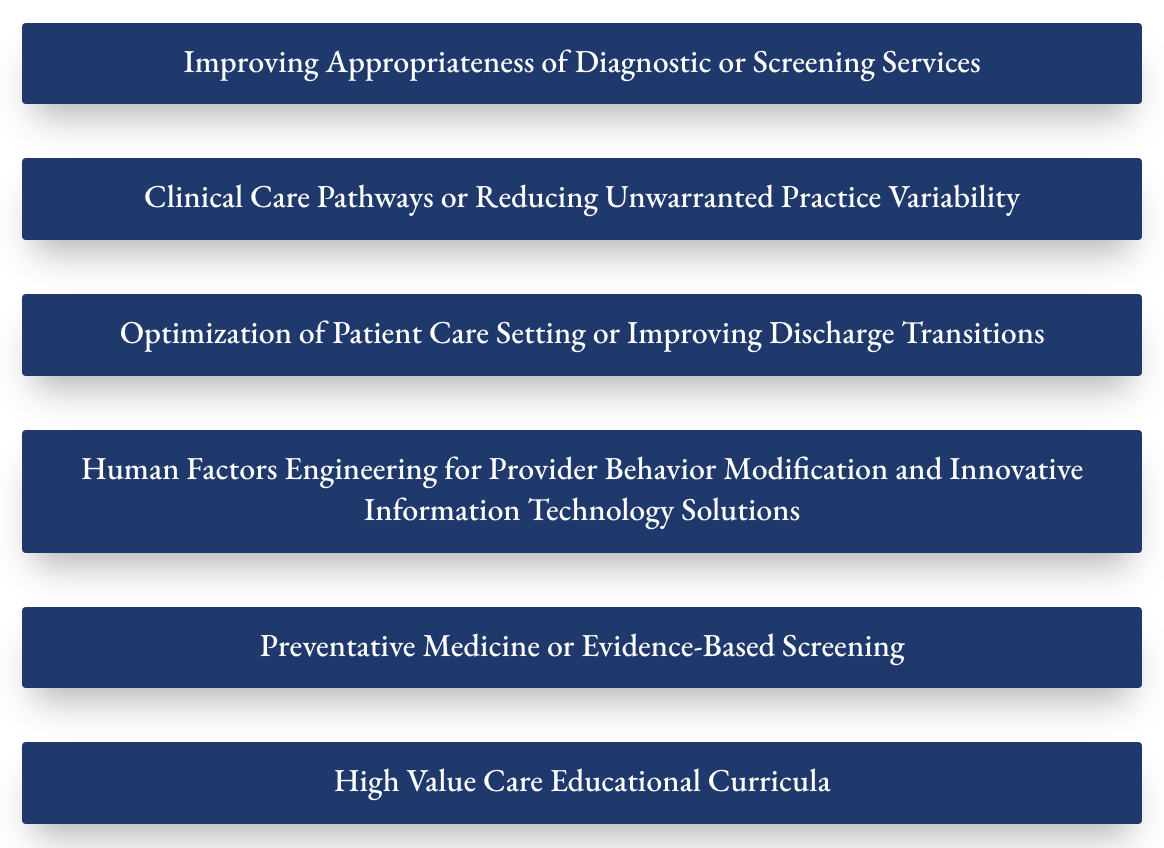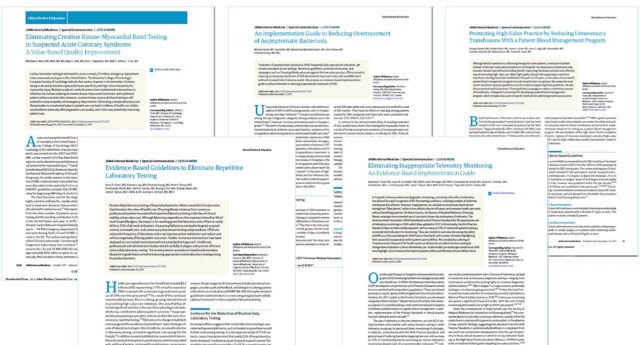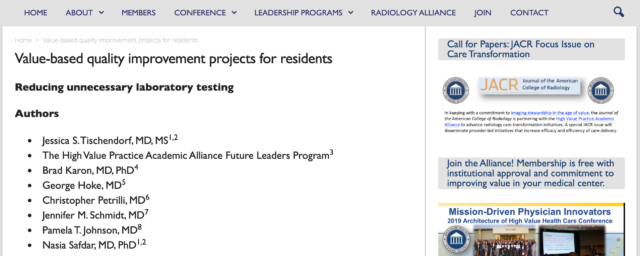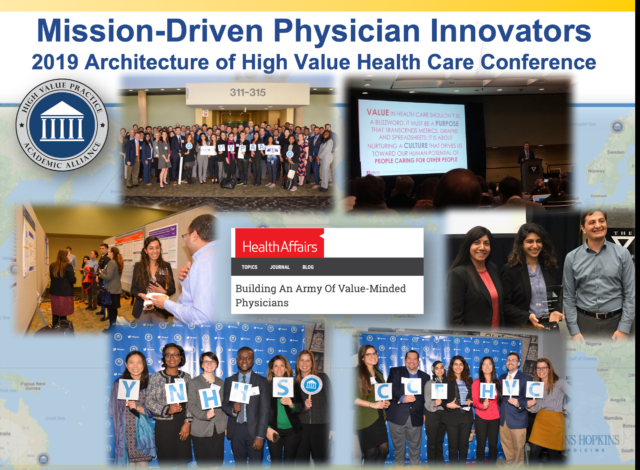From the 2019 HVPAA National Conference
Dr. Timothy Brown (University of Texas Southwestern), Dr. Salahuddin Kazi (University of Texas Southwestern), Dr. Tyler Miller (University of Texas Southwestern), Dr. Hyemi Chong (University of Texas Southwestern)
Background
Performance feedback during residency is a critical aspect of training. In the primary care clinics, feedback on chronic disease management is important but may not be readily available. Our residency program is divided into 5 “firms” sharing a clinic week in a “4+1” format in which the residents do 4 week inpatient rotations followed by 1 week of clinic. Approximately half of the program has primary care clinic at the VA. The VA has developed guideline-based institutional targets to improve the care of diabetic patients (annual hemoglobin A1c, achieving A1c<9%, targeting blood pressure to <140/90 mmHg, targeting LDL <100 mg/dL or prescription of a moderate-intensity statin, annual retinopathy referral, and annual nephropathy screening); however data reflecting achievement of these metrics is not readily available to the residents. We sought to improve rates of achievement of these metrics by providing residents with their performance data.
Methods
Data were obtained prospectively from a continuously-updated EMR-based database. A natural experiment was designed to determine the effect of feedback on achievement of performance metrics. One of the five firms was blinded to this project (no feedback) and the other four firms received weekly email feedback with their performance metrics and an average composite score. The feedback was color-coded based on achievement of the specific metric. All residents in the feedback group were provided data, however only PGY2 and PGY3 residents were included in the analysis to account for patient rollover from the previous graduating class. After seven completed clinic weeks spanning 35 weeks in the academic calendar, data were analyzed. Comparisons were made using two-tailed paired t-tests with alpha of 0.05 to determine if performance data feedback improved the achievement of performance metrics.
Results
Forty-one senior residents were included in the feedback group and ten senior residents were in the no feedback group. Feedback was associated with a mean decrease in composite score for diabetes care of 3.56% [95% confidence interval (CI) 2.52-4.60% decrease, p<0.0001] compared to no feedback. Similarly, feedback was associated with a 4.16% increase in the number of diabetic patients with hemoglobin A1c >9 [95% CI 2.94-5.37% increase, p<0.0001] and with a 7.18% decrease in diabetic patients with LDL<100 mg/dL or on moderate intensity statin [95% CI 4.91-9.44% decrease, p=0.0001) compared to no feedback. Feedback improved nephropathy screening rates by a mean of 2.99% [95% CI 0.9387-5.044% increase, p=0.0107]. No significant difference was noted in rates of annual hemoglobin A1c screening, retinopathy screening, or achievement of blood pressure <140/90 mmHg.
Conclusions
In this analysis, providing residents whole-panel feedback on their diabetic patients improved rates of nephropathy screening but otherwise did not improve whole-panel achievement of institutional performance metrics and was associated with worse metrics in several aspects of diabetic care. These results could be affected by potential crossover of patients within the primary care clinic and relatively short follow-up. Further, feedback was distributed by email, so uptake with residents is not known.
Clinical Implications
Achieving performance metrics can improve care for patients, however simple feedback of data is likely insufficient for helping residents reach established metrics in a primary care clinic.





